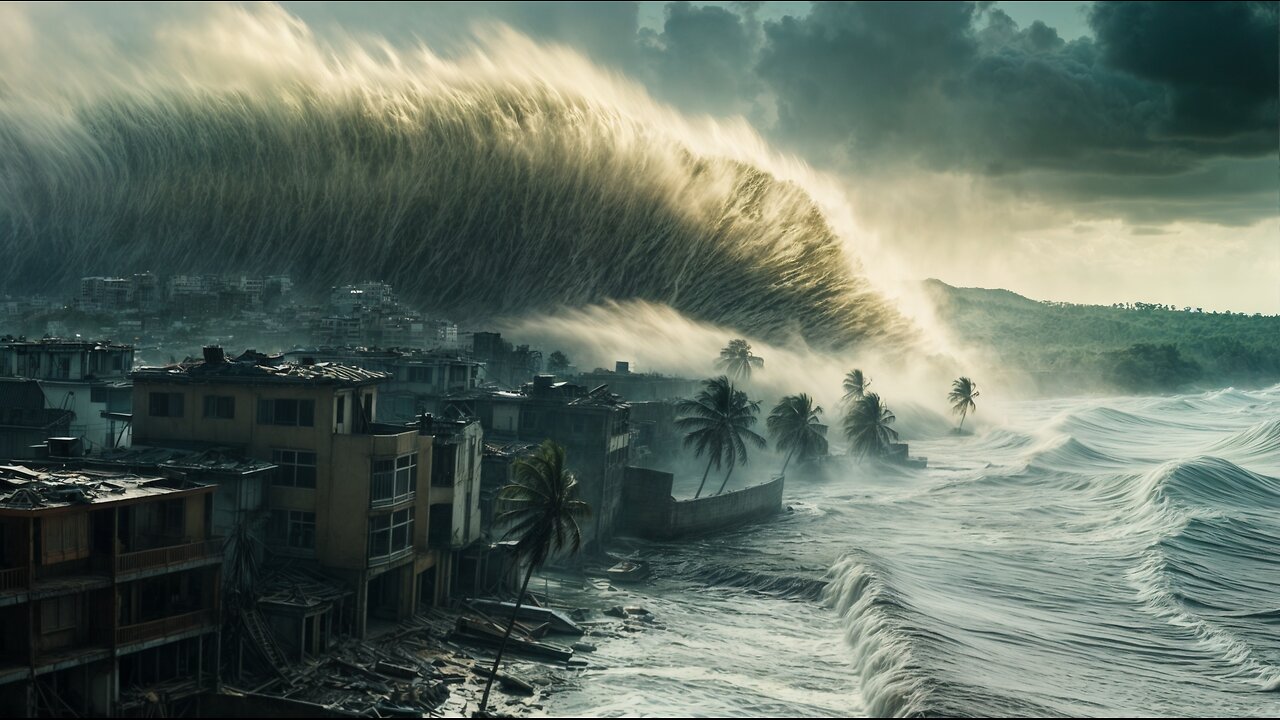Premium Only Content

Africa NOW! Cyclone Chido's Deadly Path: Mayotte, Mozambique, and Malawi Devastated
Tropical Cyclone Chido, which formed in the Indian Ocean on December 11, rapidly intensified, with wind speeds increasing from 70 miles per hour to 138 miles per hour in just 24 hours.
By December 14, the cyclone, now a Category 4 hurricane, struck the island of Mayotte, delivering a devastating blow. Authorities declared the highest level of alert, urging everyone, including emergency responders, to seek shelter.
Chido became the most destructive cyclone in the island’s history over the past 90 years. Winds of up to 143 miles per hour wiped entire villages off the map, reducing them to piles of corrugated metal and wood. Roofs were torn away, trees uprooted, and power lines downed, leaving most of the island without electricity. Authorities repurposed dozens of schools and sports halls into shelters, closed roads, and restricted access to the island’s only airport, which was damaged and could only accommodate military aircraft.
The capital, Mamoudzou, was almost completely destroyed: rubble from schools, hospitals, restaurants, and government buildings littered the streets, turning the city into a disaster zone. In some areas of Mayotte, entire neighborhoods of tin shacks and huts were flattened, and numerous boats were overturned or sunk.
Two days after the disaster, French officials reported 21 fatalities and 1,418 injuries, 45 of which were critical. However, these figures remain approximate due to the scale of destruction, which makes it difficult to assess the true human toll.
The situation worsened with severe damage to Mayotte’s main hospital, prompting efforts to set up a field hospital. Twenty-five critically injured patients had to be evacuated to medical facilities outside the island.
On December 15, Tropical Cyclone Chido, now a Category 3 hurricane, struck northern Mozambique. Strong winds of up to 115 miles per hour, thunderstorms, and heavy rainfall exceeding 10 inches in 24 hours wreaked havoc on the densely populated provinces of Cabo Delgado and Nampula.
More than 5,800 homes were destroyed, and schools, power lines, and fishing boats were damaged. Many areas were left without electricity or communication. In the coastal city of Pemba, part of the tourist infrastructure, including hotels, suffered significant damage.
In Mozambique, the cyclone claimed the lives of at least four people, with 37 more injured.
As it moved inland, Chido weakened to a tropical storm. By December 16, it brought torrential rains and strong winds to Malawi. In the districts of Machinga and Phalombe, over 900 homes were damaged, and schools, medical facilities, and childcare centers suffered severe damage. Three people lost their lives in Malawi.
Tropical cyclones are growing stronger. Each new cyclone has the potential to intensify suddenly before making landfall, wiping out entire communities in its path, as happened in Mayotte. According to the latest research, rising ocean temperatures in 2024 have significantly intensified tropical cyclones in the Atlantic, increasing their maximum wind speeds. Similar trends are being observed in other ocean basins.
To learn more about how these events might unfold in the coming years and how to protect yourself and your loved ones, check out the forum “Global Crisis. The Responsibility.”
-
 27:01
27:01
AllatRa TV
5 days agoEgon Cholakian: A Brief Analysis of the Climate Situation
872 -
 58:10
58:10
Kimberly Guilfoyle
15 hours agoAmerica is Back & The Future is Bright: A Year in Review | Ep. 183
87.6K56 -
 3:03:27
3:03:27
vivafrei
20 hours agoEp. 242: Barnes is BACK AGAIN! Trump, Fani, J6, RFK, Chip Roy, USS Liberty AND MORE! Viva & Barnes
161K191 -
 8:09:50
8:09:50
Dr Disrespect
18 hours ago🔴LIVE - DR DISRESPECT - MARVEL RIVALS - GOLD VANGUARD
202K33 -
 1:15:00
1:15:00
Awaken With JP
17 hours agoMerry Christmas NOT Happy Holidays! Special - LIES Ep 71
228K190 -
 1:42:21
1:42:21
The Quartering
18 hours agoTrump To INVADE Mexico, Take Back Panama Canal Too! NYC Human Torch & Matt Gaetz Report Drops!
172K110 -
 2:23:15
2:23:15
Nerdrotic
18 hours ago $14.19 earnedA Very Merry Christmas | FNT Square Up - Nerdrotic Nooner 453
129K13 -
 1:14:05
1:14:05
Tucker Carlson
18 hours ago“I’ll Win With or Without You,” Teamsters Union President Reveals Kamala Harris’s Famous Last Words
228K379 -
 1:58:31
1:58:31
The Dilley Show
18 hours ago $36.58 earnedTrump Conquering Western Hemisphere? w/Author Brenden Dilley 12/23/2024
170K50 -
 1:09:59
1:09:59
Geeks + Gamers
19 hours agoSonic 3 DESTROYS Mufasa And Disney, Naughty Dog Actress SLAMS Gamers Over Intergalactic
115K21